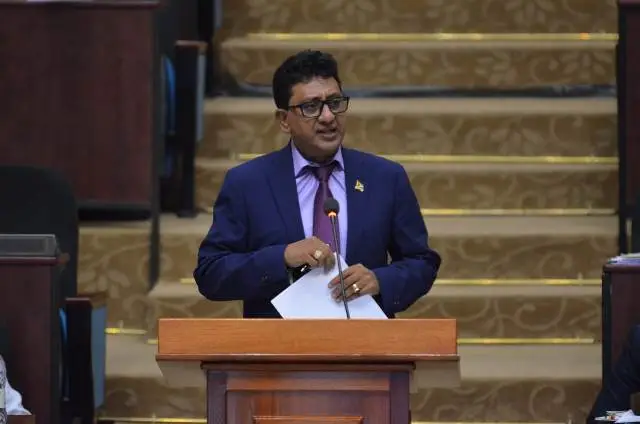The National Assembly on Monday evening passed the Criminal Law Procedure (Paper Committals) Bill 2024, which abolishes lengthy preliminary inquiry (PI).
This Bill is expected to have a transformative effect on the country’s legal system once enacted, particularly saving judicial time, reducing the backlog of criminal cases and reducing the prison population on remand.
Attorney General and Minister of Legal Affairs, Anil Nandlall, SC, is the one who presented the Bill to the National Assembly. “This Bill seeks to abolish traditional oral preliminary inquiries in Guyana completely,” he said.
Nandlall noted that the Bill provides for the elimination of traditional PIs with the substitution of paper committal.
The paper committal is more effective as it involves the reviewing of evidence and arguments presented by both the prosecution and defence in written form in the absence of witnesses, rather than conducting an oral in-person hearing.
At the Magistrate’s Court, magistrates often utilise the process of PIs for offences like murder. This process usually takes a minimum of three years to complete. Notably, in cases where the accused person is remanded, he/she remains in custody for those years until the PI comes to and end when the magistrate rules if a prima facie case has been made for the accused to go before a judge and jury.
Nandlall noted that while the accused remains in custody there is a great financial burden on the state. Added to that he said, “I cannot also omit to mention that the protracted period on remand can also result in the deprivation of the accused right to a fair trial within reasonable time, a fundamental freedom guaranteed [under the constitution of Guyana].”
On the other hand, a paper committal which was introduced back in 2008 and can last up to 45 days. “The main purpose of this Bill is to bring efficiency, proficiency [and] expediency.” the Attorney General stressed.
Moreover, Nandlall noted that paper committals are utilised by several countries in the Caribbean Community (CARICOM) while Guyana lags behind. “We have laboured with what is now clearly an outmoded process for nearly six decades… I don’t think that anyone can argue that the time for paper committal is [not] long overdue,” he said.
Further, he explained that while the law previously catered for the paper committal process, it is not often utilised by attorneys-at-law. “It appears as lawyers continue to insist on an oral preliminary inquiry,” the Attorney General noted.
However, with the House approving the Bill that option is no longer available to dispose of criminal cases at the Magistracy level.













